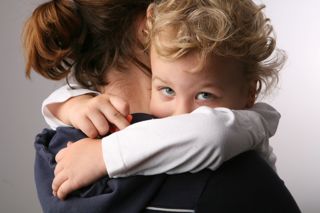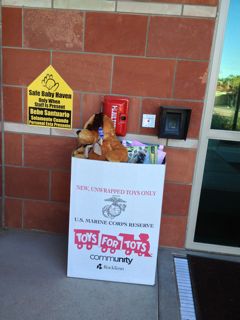
You always remember exactly where you were and what you were doing when disaster strikes. Last Friday morning, I was volunteering in my son’s kindergarten classroom. The news shocked me to the core.The contrast of that evil intruder devastating the lives of children, families and a community clear across the nation, while I stood in this classroom full of happy smiles, laughter and innocence left me in disbelief and denial.We send our children to school every day trusting they are safe. Since Friday I have been dealing with my own fears, since my greatest fear is losing a child. How do I react? What do I say to my kids? I don’t want them to pick up on my fears. What do I say if they ask me about it?
I don’t want them to be afraid to go to school, but I do want them to know that life can be painful and hard to deal with. War, hurricanes, flooding, death, divorce are a part of life.
This is an opportunity, because a big part of our job as parents is teaching our children right thinking and right reactions. Learning how to deal with thoughts, feelings, concerns and the confusion that comes is a part of maturity.
So how can we help our kids?
- First, it’s essential to validate their feelings and be sensitive to them. Every child will react and process these events in different ways so respect that. Ask questions. So far, my boys ages five and eight don’t know about the disaster, and I’m glad, but friends at school may start talking about it. Last night Carter, age 8, told me that something really sad and bad happened at a school in Conneticut and his class is mailing a care package with cards.
- Keep daily routines as normal as possible. Routine gives security.
- Turn off the media.
- These are teachable moments and the way we react during tough times and the things that we say build character in our children and teach them resiliency, hope and courage. Look at the heroes of Sandy Hook. Reflect on the dad who lost a child but said: “My heart goes out to the family of the killer.”
“Kids (and adults) don’t just need the truth in their heads — they need it in their bones. They need to know what courage looks like and tastes like and smells like before they ever have to show it themselves. They need to do justly, and love mercy, and walk humbly — heroes and villains can show them why. They need to loathe the darkness and love the Light.” N.D. Wilson - Model positive thinking. As tough as it may be, deal with your own feelings of revenge, worry, and panic. Our kids pick up on emotions around them and are looking at us for strength and assurance. Train your mind to focus on the good that comes out of evil. Know that good wins out. Disaster brings people together, strengthens relationships and comunities.
- Be part of the solution to the tragedy. Get children involved in helping the community by collecting donation, food, supplies, or care packages. Even giving to local needs ‘pays it forward.’ Volunteering is considered the best way to build character.

Toys for Tots box at Scottsdale Fire Station #1901
I ache for the families of those sweet innocent children whose lives were forever changed in an instant.
I picked my boys up from school on Friday and squeezed them tight. My hugs are harder and longer now. Our thoughts and prayers go out to all those affected in Newtown, CT.

Jenny Riojas